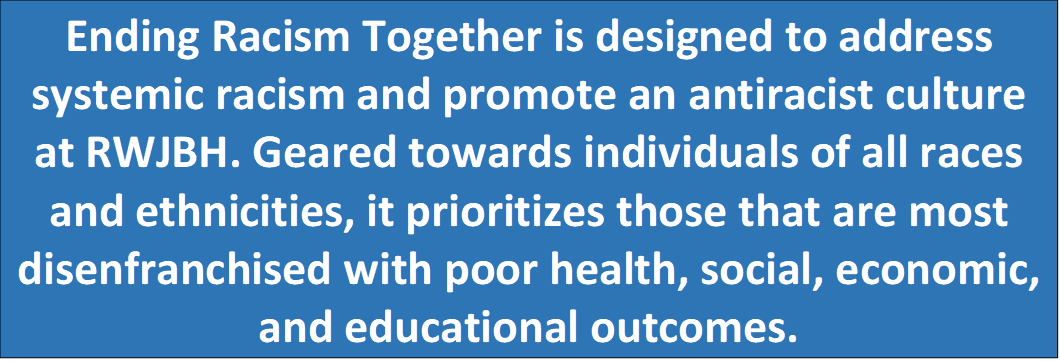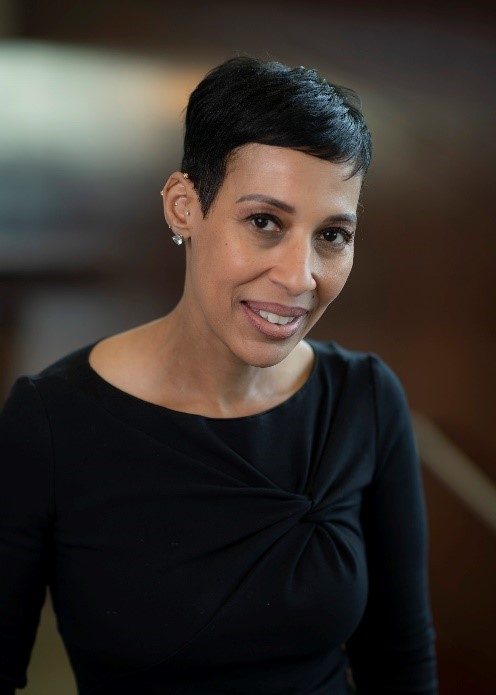The healthcare professionals sat silent as the discussion of systemic racism began. The space was divided, as if purposeful, like pieces on a chess board. Amongst our own, we tend to feel most at ease, most accepted, most welcomed. The discussion turned heavy when a young woman shared a tale familiar to some, but concerning, nonetheless.
I had been on the cardiac care unit for just over a year and was on my way to give medications to Mrs. Preston, an older woman who, unfortunately, visits the hospital frequently. This time, I was greeted by a woman who looked just like Mrs. Preston, but younger, she said, “I think it best that you do not work with my mom anymore”, looking at me and smiling the entire time, “no offense…but mom has difficulty understanding you when you talk and that makes her upset. It is bad for her heart, and I am sure we don’t want that…Plus, I’m not certain what they teach in the schools where you’re from, it is probably different than here in America, right?” her voice got louder. Hmph, as if I couldn’t hear her. “You do understand? It is all about the best care for mom.” Then she hurried down the hall, to the nurse’s station to speak with Rose, the manager on duty. I couldn’t hear everything she was saying, but from the words I caught I could tell she was asking that her mom be reassigned. I was offended she asked me about nursing school in Nigeria…it might be different, but I wouldn’t know, I got my bachelor’s and master’s at Rutgers University. And I am the only one on the unit with multiple certifications. I am more qualified than Rose, who had indicated she’d now be the one to care for Mrs. Preston. Later, Rose pulled me aside and told me that I had really upset Mrs. Preston yesterday. I indicated that I did not work with her yesterday. We went back and forth. I told her that this was the first time the daughter has even come to visit. Finally, Rose said, “I can only go by what the patient tells me. You are way too sensitive. You have to learn to let these things go.”
The 25 multidisciplinary healthcare professionals just looked at one another. The half of the room that had experienced similar incidents and had more melanin wondered things like, “When will we not have to ‘let things go’?”, “When will resilience not be a daily requirement?”, “Why does the burden of proof always lie with us?”. The other half was a mixture of emotion. Some empathized while others were baffled, questioning, “What was wrong with that?” and “Why is everything about race?”.
Leadership has always been committed to equity, demonstrating it through its DEI and SICI work. The declaration to be antiracist took this commitment farther. It meant that RWJBH would comprehensively and proactively focus on dismantling systemic racism within the system through the identification, revision, and replacement of policies, practices, procedures, and behaviors. This was not a new initiative, but an intentional and orchestrated shift in the culture of the organization that could not be one person’s or one department’s responsibility. How RWJBH intended to End Racism Together (ERT) was to engage every key stakeholder with which it connected. From its workforce to its board, its patients to its community, its vendors to its partners—that is how sustainable change is made. While the prescription to end systemic racism at RWJBH is ambitious, it’s clear that other organizations starting at a different place will need to tailor their approach to fit their own context and needs.

GOAL 1: Ensure that PATIENTS of all races, ethnicities and cultures are afforded safe, high-quality, equitable, and antiracist care.
GOAL 2: Offer the RWJBH WORKFORCE a safe, nurturing, equitable, and antiracist environment in which to work that affords professional development opportunities, potential for growth, and avenues for their voices to be heard.
GOAL 3: Contribute to the equitable health and elimination of disparities within the COMMUNITIES it serves by leveraging the power of its anchor institutions to promote positive health outcomes.
GOAL 4: Review and revise OPERATIONAL processes and procedures that fall outside of the aforementioned areas to ensure the promotion of an antiracist environment.
The following are some things RWJBH is learning along its own journey to racial equity that might be helpful to other organizations as they embark upon their own.
- Strong bones don’t break. To ensure continuity and longevity, the Racism and Social Justice Committee was formed to oversee ERT at the governance level. Concurrently, a cross-functional steering committee of internal stakeholders was formed, chaired by the President and Chief Executive Officer. The creation of a board committee, the leadership and commitment of the CEO, and the resources to support a monumental and sustained culture shift signal the significance of the commitment.
- Diagnose, prevent and treat the problem. The broad goals created to dismantle racism were based on knowledge of community and national research on racism in healthcare; however, to end systemic racism in a sustainable way, it started a full year of discovery and planning. We learned that:
- Systemic racism exists at RWJBH;
- In all areas (patients, workforce, and community) outcomes are worse in people who identify as Black or African American;
- The issues are vast, but we needed to start somewhere and measure the change;
- Consistent and standardized data and documentation is critical.
- Capturing race, ethnicity, and language (REAL) data in a standard way across all areas will allow for better outcomes;
- Documenting and tracking clinical, behavioral and social needs in a consistent and universal way will address issues of access, bias, and stigma and will likely increase adherence to medical advice, promoting improved outcomes;
- Increased awareness and education are needed at all levels of the organization;
- It is necessary to be methodical in how racial equity is assessed and inserted into practice. Using a Racial Equity Assessment tool adapted from Race Forward, teams can ensure that as policies, programs, and projects are created and reviewed, communities of color are considered and not harmed.
- Accountability is key–Every member of the workforce will be accountable in performance evaluations and through bonus compensation.
Looking ahead, health systems and other organizations can learn from RWJBH’s approach, with incremental wins already being realized such as increased leaders of color, institution of the Black Executive Alliance, a plan for training the workforce on issues of racism/equity, and revised policies. To access the full plan or stay abreast of RWJBH’s progress, contact us at endingracism@rwjbh.org to end racism together. It takes all of us to work beyond the good intentions to tactical actions, and operationalizing racial equity in practice. Changing mindsets, changing norms, and building healthier communities.
About the Author
 DeAnna Minus-Vincent, Executive Vice President and Chief Social Justice & Accountability Officer at RWJBarnabas Health is charged with transforming the culture of RWJBH, the largest most comprehensive healthcare system in the state of New Jersey. DeAnna, her team, and multidisciplinary teams of experts work to ensure that patients, the workforce, the community, and RWJBH operations reflect antiracist policies, practices, and procedures with the goal of improving health outcomes, promoting health equity and eliminating health disparities. Since joining RWJBH in 2018, DeAnna has worked with partners to ensure families and individuals have a safe, stable and affordable place to call home; she standardized the metrics to ensure social impact and community investment programs are evaluated and measured across the system; and she developed and received over $2.7 million in grants to initiate Health Beyond the Hospital, a culturally adapted, multi-modal universal social determinants screening effort that integrates social factors into the clinical setting by overcoming barriers for both clinical providers and patients. Before coming to RWJBarnabas Health, DeAnna served for more than seven years as the Chief Engagement Officer at Benefits Data Trust (BDT), a national social change organization, where she facilitated cross-sector partnerships, diversified the organization’s revenue streams and oversaw the organization’s strategic positioning. Additionally, she has served as the Assistant Commissioner for the New Jersey Department of Community Affairs. DeAnna has been recognized for her work in the community and in health care. DeAnna received a Master of Public Administration from Rutgers University, and a Bachelor of Arts in sociology from Morgan State University, a historically Black university. DeAnna is currently pursuing a Doctorate in Business Administration with a concentration in Health Leadership and Innovation.
DeAnna Minus-Vincent, Executive Vice President and Chief Social Justice & Accountability Officer at RWJBarnabas Health is charged with transforming the culture of RWJBH, the largest most comprehensive healthcare system in the state of New Jersey. DeAnna, her team, and multidisciplinary teams of experts work to ensure that patients, the workforce, the community, and RWJBH operations reflect antiracist policies, practices, and procedures with the goal of improving health outcomes, promoting health equity and eliminating health disparities. Since joining RWJBH in 2018, DeAnna has worked with partners to ensure families and individuals have a safe, stable and affordable place to call home; she standardized the metrics to ensure social impact and community investment programs are evaluated and measured across the system; and she developed and received over $2.7 million in grants to initiate Health Beyond the Hospital, a culturally adapted, multi-modal universal social determinants screening effort that integrates social factors into the clinical setting by overcoming barriers for both clinical providers and patients. Before coming to RWJBarnabas Health, DeAnna served for more than seven years as the Chief Engagement Officer at Benefits Data Trust (BDT), a national social change organization, where she facilitated cross-sector partnerships, diversified the organization’s revenue streams and oversaw the organization’s strategic positioning. Additionally, she has served as the Assistant Commissioner for the New Jersey Department of Community Affairs. DeAnna has been recognized for her work in the community and in health care. DeAnna received a Master of Public Administration from Rutgers University, and a Bachelor of Arts in sociology from Morgan State University, a historically Black university. DeAnna is currently pursuing a Doctorate in Business Administration with a concentration in Health Leadership and Innovation.